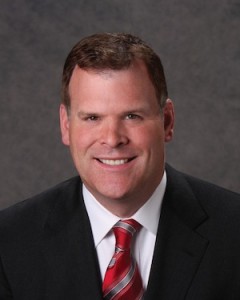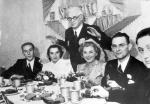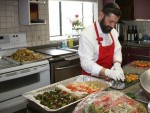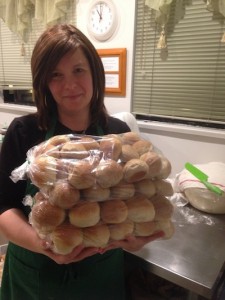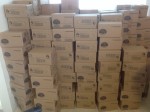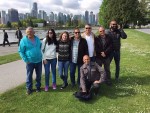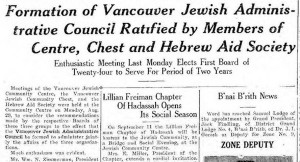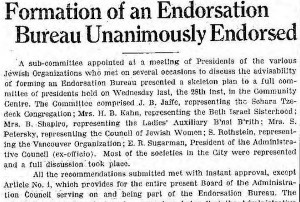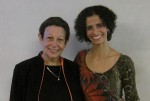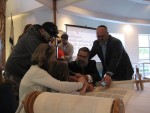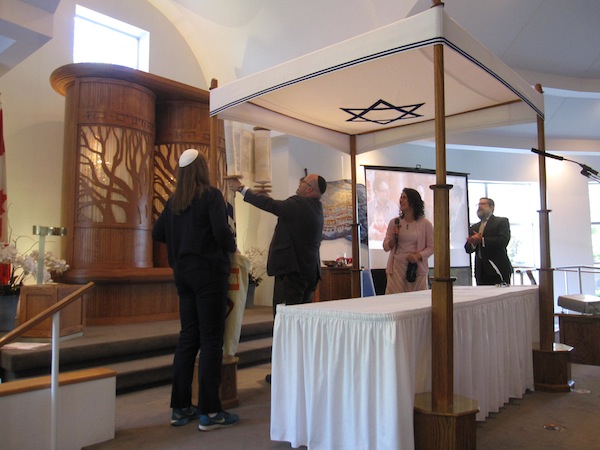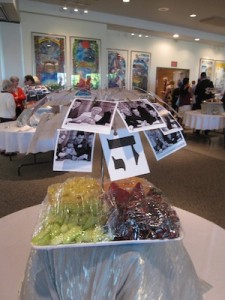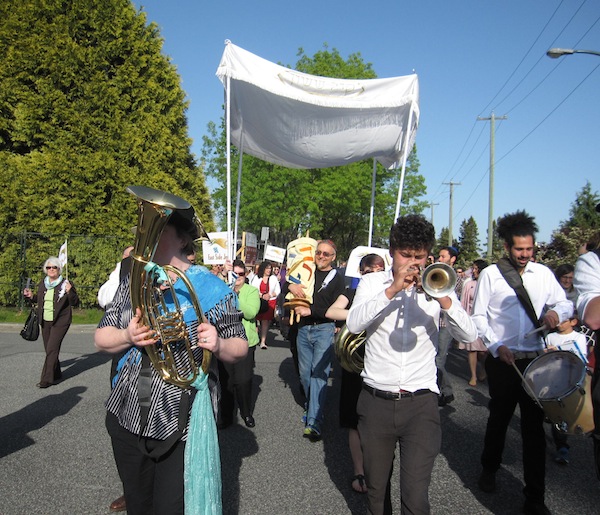Growing up going to Hebrew school at a Conservative synagogue in Vancouver’s North Shore was a good start for Leo Robinovitch.
While Congregation Har El initiated his exploration into his Jewish identity and connection to Israel, it was a year after Robinovitch’s bar mitzvah that he really delved deeply into Judaism.
“It was then that I started attending Camp Miriam, a progressive, labor-Zionist summer camp affiliated with the youth movement Habonim Dror,” said Robinovitch, who will be returning to Israel this summer.
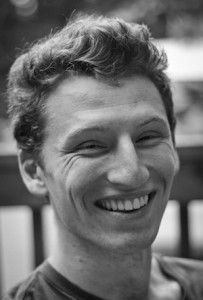
“Habonim Dror machanot (summer camps) provide children ages 8-17 with a unique camping experience,” the movement’s description reads on its website. “Based on the model of a kibbutz, each machaneh (camp) creates a close-knit community based on Jewish ideals of collective responsibility, respect, equality and friendship…. Campers grow physically, emotionally and intellectually in a creative, open and caring environment. Habonim Dror has been providing a machaneh experience since 1932.”
In the summer of 2009, Robinovitch spent five weeks with Habonim Dror in Israel and later participated in Habonim Dror’s gap year program (from 2011 through to 2012), living in the north of Israel and teaching English in largely Arab cities in the region.
Camp Miriam and Habonim Dror personalized and solidified Robinovitch’s “connection to the Jewish people and our shared fate surrounding Israel, as well as prioritized the formation of a just, equitable, and democratic Israel over all else.”
Robinovitch has always been a technology and engineering enthusiast, an apple that definitely did not fall far from the tree with his father working as a biomedical engineering professor at the University of British Columbia.
“My sixth birthday party was engineering themed,” recalled Robinovitch. “My dad helped me set up a pulley and created a bunch of ping pong ball catapults, much to my own and my tiny friends’ delight.
“I’ve known that I would complete a degree in engineering from a very early age. And, now that I’m more than halfway through my mechanical engineering degree at UBC, I remain passionate about the future of technology and its connection to society, politics and the economy.”
On his most recent trip to Israel this past December, Robinovitch heard about a Birthright Israel Excel program through a few folks he met on the trip. “They were Excel alumni from a couple years ago,” said Robinovitch. “They were all extremely bright, motivated people who I shared many passions with.”
The alumni encouraged Robinovitch to apply for the program, as it had helped focus their careers and exposed them to a world of intelligent, hard-working people.
After looking further into the program, Robinovitch found it to be the perfect way to combine his commitment to Israel with his passion for technology, as well as gain necessary entrepreneurial skills for technology-related business endeavors he envisioned for himself in the future.
For 10 weeks this summer, Robinovitch will be working at a high-profile company in Tel Aviv, living with around 40 peers from across North America interested in commerce, finance, technology, medicine and venture capital (VC).
“I’ve spoken with the Excel staff extensively about my interests, and I’ll be finding out my placement in the coming weeks,” said Robinovitch. Possible internships include R&D for Microsoft, market analysis for General Motors, high-profile VC firms (such as Innovation Endeavors) and cyber-security firms.
During his stay in Israel, Robinovitch will also be traveling through the country and speaking with a number of prominent Israeli leaders over the summer, interacting with a number of Israeli peers with similar interests, and broadly experiencing Tel Aviv life.
Robinovitch is looking forward to further experiencing Israel and contributing to its affairs. “It’s very important for me to connect my passions for technology and Israel, and I look forward to doing so for the first time this summer,” he said.
Robinovitch anticipates that this Excel experience will help him decide which industry he wants to pursue, as well as build a diverse array of Israeli and North American partners with whom he will work well into the future.
While Robinovitch’s previous time in Israel was centred on social justice work and education, he is eager to play a larger role this time around in creating change.
“While this work [social justice and education] is still important to me – unquestionably some of the most important work to be done in Israel – I highly value this opportunity to experience Israel’s thriving tech and startup scene,” said Robinovitch. “It’s a side of Israel I’ve never been able to experience before and I believe that I will be able to tie in this summer’s experience with social justice projects in the future.”
As a student at UBC, Robinovitch has experienced some negative social justice campaigns aimed at Israel, like the recent BDS referendum (boycott, divest and sanction Israeli firms and products) and he is aware of how hot button an issue it has been this year at his university – in particular among the Jewish and Palestinian communities on campus.
“While I feel strongly that the Palestinian people deserve their own land in which to actualize themselves politically, culturally, religiously, etc., I cannot support the BDS movement because of its ultimate goal of the destruction of the Jewish state,” said Robinovitch. “Voting ‘no’ on the referendum, however, seems highly insubstantial compared to the work I will be doing this summer and in the future to contribute to a better Israel.”
Robinovitch encourages those invested in Israel at UBC and further afield “to take action beyond shooting down the BDS movement in order to strengthen Israel and create a more just reality for Palestinians.
“Additionally, I feel strongly that more Jewish youth should experience Israel and Judaism. I have been extremely lucky to be able to explore Jewish peoplehood through the opportunities that I’ve had the privilege of experiencing.”
For those in the community interested in discussing opportunities to experience Israel and Judaism through specialized programming, Robinovitch would be happy to help and can be contacted via e-mail at leorobinovitch@gmail.com.
Rebeca Kuropatwa is a Winnipeg freelance writer.

